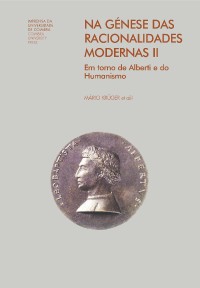Please use this identifier to cite or link to this item:
https://hdl.handle.net/10316.2/36668| DC Field | Value | Language |
|---|---|---|
| dc.contributor.author | Providência, João Paulo | |
| dc.date.accessioned | 2015-06-09T15:56:22Z | |
| dc.date.accessioned | 2020-09-09T10:27:17Z | - |
| dc.date.available | 2015-06-09T15:56:22Z | |
| dc.date.available | 2020-09-09T10:27:17Z | - |
| dc.date.issued | 2015 | - |
| dc.identifier.isbn | 978-989-26-1014-6 | |
| dc.identifier.isbn | 978-989-26-1015-3 (PDF) | |
| dc.identifier.uri | https://hdl.handle.net/10316.2/36668 | - |
| dc.description.abstract | This paper asks about the presence of the treaty De re aedificatoria by Leon Baptist Alberti in the Tratado da Conservação da Saúde dos Povos (Treaty for the Conservation of Health of People), a major work by the enlightened Portuguese medical doctor António Nunes Ribeiro Sanches printed in Paris in 1756. The treaty by Sanches situates itself between sixteenth century renaissance rationalities and nineteenth century enlightenment, pointing to the importance of climates and atmospheres on “the Conservation of Health” and therefore anticipating studies on Public Hygiene. Sanches quotations of Alberti’s treaty allows him to highlight the importance of physical context in building, and reinforces the analogies city‑architecture, architecture‑medicine and architecture‑body and fosters the social role of architecture in the beginnings of the modern age. | eng |
| dc.description.abstract | A presente abordagem indaga sobre a presença do tratado Da Arte Edificatória de Leão Baptista Alberti no Tratado da Conservação da Saúde dos Povos, obra do médico iluminista António Nunes Ribeiro Sanches impressa em Paris em 1756. Situando‑se entre as racionalidades do renascimento quinhentista e o iluminismo novecentista, o tratado de Sanches discorre sobre atmosferas e climas para determinar a Conservação da Saúde, antecipando a Higiene Pública. O recurso ao tratado de Alberti permite sublinhar a atenção aos contextos físicos no edificar, reforça as analogias cidade‑arquitetura, arquitetura‑medicina e arquitetura‑corpo e instaura no início da época moderna uma conceção arquitetónica atenta ao seu papel social. | por |
| dc.language.iso | por | - |
| dc.publisher | Imprensa da Universidade de Coimbra | por |
| dc.relation.ispartof | http://hdl.handle.net/10316.2/36661 | por |
| dc.rights | open access | - |
| dc.subject | António Nunes Ribeiro Sanches | eng |
| dc.subject | Public health treaties | eng |
| dc.subject | Analogy Medicine‑Architecture | eng |
| dc.subject | António Nunes Ribeiro Sanches | fre |
| dc.subject | Traité de la santé publique | fre |
| dc.subject | Analogies architecture‑médecine | fre |
| dc.subject | António Nunes Ribeiro Sanches | por |
| dc.subject | Tratados de saúde pública | por |
| dc.subject | Analogia Medicina‑Arquitetura | por |
| dc.title | O Aristóteles dos nossos tempos: Alberti a partir de Ribeiro Sanches | por |
| dc.type | bookPart | por |
| uc.publication.firstPage | 117 | - |
| uc.publication.lastPage | 130 | - |
| uc.publication.location | Coimbra | por |
| dc.identifier.doi | 10.14195/978-989-26-1015-3_6 | - |
| uc.publication.section | III. Antropologia e técnica | por |
| uc.publication.digCollection | PB | por |
| uc.publication.orderno | 7 | - |
| uc.publication.area | Artes e Humanidades | por |
| uc.publication.bookTitle | Na génese das racionalidades modernas II: em torno de Alberti e do Humanismo | - |
| uc.publication.manifest | https://dl.uc.pt/json/iiif/10316.2/36668/208599/manifest?manifest=/json/iiif/10316.2/36668/208599/manifest | - |
| uc.publication.thumbnail | https://dl.uc.pt/retrieve/11141077 | - |
| uc.publication.parentItemId | 54508 | - |
| uc.itemId | 69754 | - |
| item.grantfulltext | open | - |
| item.fulltext | With Fulltext | - |
| Appears in Collections: | Na génese das racionalidades modernas II: em torno de Alberti e do Humanismo | |
Files in This Item:
| File | Description | Size | Format | |
|---|---|---|---|---|
| o_arist_teles_dos_nossos_tempos.pdf | 1.01 MB | Adobe PDF |  |
Items in DSpace are protected by copyright, with all rights reserved, unless otherwise indicated.
